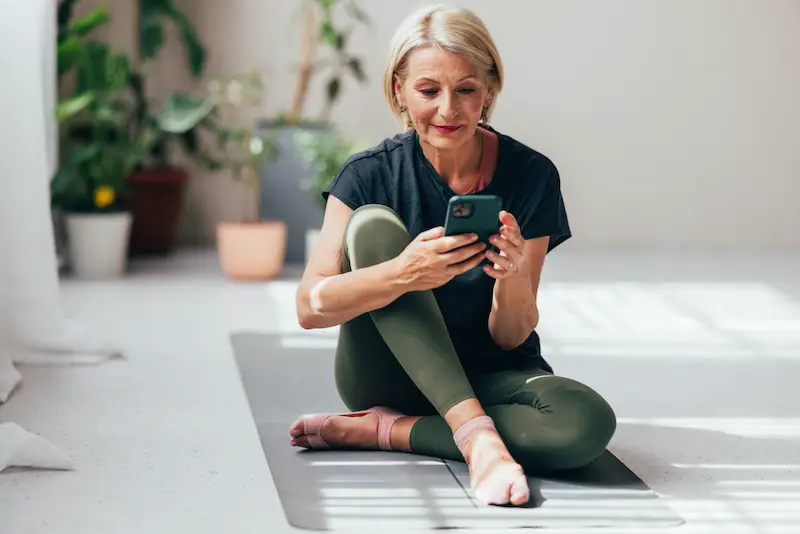In a world in which Selfcare has long since meant more than a morning smoothie and a face mask on Sunday evening, the current Doetsch Grether prevention monitor 2025 from Gfs.Bern: 95 % of the Swiss surveyed demand that mental health should be weighted more in prevention. Dietary supplements in particular are increasingly perceived by women as an important part of holistic health care. And that is no longer a short -term trend – but part of a movement that sees self -care as an expression of a conscious, modern lifestyle.
 Image: PD
Image: PDHealth is the new luxury. But in 2025 it is no longer just about a slim body or a superfood Müesli for breakfast. A new generation of women redefines prevention as an act of self -determination, mindfulness and mental strength. According to the motto: What does the perfect glow serum bring us when the head is in overload mode? The current Swiss prevention monitor from the renowned research institute Gfs.Bern on behalf of Doetsch Grether* makes it clear: for 95 % of the Swiss people surveyed and for the younger generation between 18 and 39 years, mental health is at the top of the personal agenda.

Image: PD
Health care as a lifestyle
Health care is a central concern for three quarters of the Swiss population – with an average value of 7.7 out of 10 points. Women in particular take on a pioneering role here: they not only evaluate prevention more than important, they also live them more consciously. Mental resilience, a mindful handling of stress, addiction prevention, balanced diet and the targeted use of nutritional supplements – all of this is a matter of course for many women today for a modern health culture and its alllag.
Magnesium & Co. increasingly popular
Dietary supplements are becoming increasingly important. This is not as a replacement, but as a smart addition to a healthy lifestyle. 61 % of women rely on vitamins and minerals, especially magnesium. Whether for strong nerves, relaxing sleep or relaxed muscles: the mineral has established itself an integral part of many wellness routines. Men are somewhat more reserved in this regard: only 44 % use supplements, with a slightly falling tendency.

Critical self -assessment of women
Women are not only more critical when it comes to their lifestyle – they also reflect more intensively. Many indicate that too little to invest in a balanced diet or the conscious avoidance of excessive sugar.
The potential of technology
Health portals, TV programs and search engines are used by women with increasing grant. Nevertheless, trust in general practitioners remains high. For 84 % of all respondents, these are still the most important instance in health issues, followed by pharmacies with 70 % and physiotherapists and expert people in a personal environment.
Digital helpers-from fitness trackers to health apps-are particularly popular with young, urban women and very active people, while the 65 + generation grants them significantly less relevance. Even when it comes to artificial intelligence, there are significant differences in the generations: 62 % of 18- to 39-year-olds trust AI-based early identification and forecast tools, but only 40 % of the over 65 year olds. Men are somewhat more open to the new technology with 62 %, while women remain reserved with 46 %.

Swiss health system with air up
The Swiss population basically looks at their state of health satisfied: across all ages and genders, the respondents award them solid 7.3 out of 10 points on average. Your own prevention behavior is also rated quite positively with 7.1 points.
On the other hand, the judgment about the Swiss health system is less flattering: its benefits to promote individual health only achieve 6.6 points – a decline compared to the previous year (2024: 6.9 points). This discrepancy between personal commitment and institutional support shows that if you want to live healthy, you often have to take the initiative yourself.
Impulses for the national prevention strategy 2040
The Federal Council was commissioned to develop a national prevention strategy 2040 by 2026. And the current monitor provides valuable impulses for this. The message of 95 % of women surveyed and the younger generation is particularly clear: they demand that mental health are taken into account more – not as a border issue, but as a central component of holistic health care. Also remarkable: 72 % of all Swiss people surveyed agree that personal health prevention depends heavily on the financial means and should be made more accessible to everyone. A national prevention strategy today would take around 65 % or rather accept.















Leave a Reply